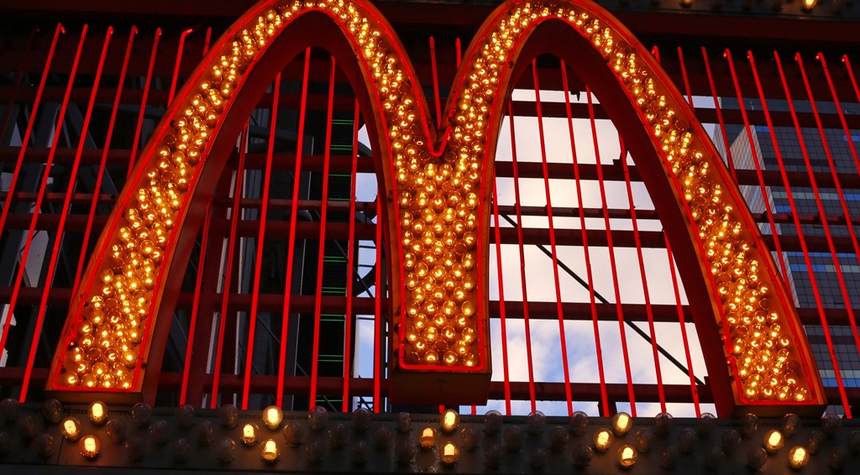Donald Trump is the kingmaker of the Republican Party, and for that reason alone, he remains the best choice for 2024 despite the firestorm of negative media coverage, censorship, and the looming threat of indictment, which have haunted him since being forced out of office in January 2021. In the time since Trump has been gone, Americans have watched their economy tank, their freedoms attacked, and we are now disconcertingly close to an out-and-out ground war with nuclear Russia. Meanwhile, Democrats plan to do irreparable damage to institutions (like the Supreme Court) that have checked the worst excesses of liberal hegemony. The military industrial complex, having been subdued in the Trump years, is now back with a vengeance not seen since the Bush-Cheney years. For their part, the Republicans have reverted to their preferred disposition: that of lovable losers.
The concerted efforts of many Republican establishment types to elevate Florida Governor Ron DeSantis over Trump is in keeping with that disposition. It would be a grave mistake for many reasons. At the top of the list is DeSantis’ failure to outcompete Trump from the Right on any meaningful issue. This was revealed early in the pandemic when DeSantis imposed some of the strictest lockdowns in the country, only to roll them back months after it became obvious that, for most people, COVID-19 was no worse than a severe flu. To his credit, DeSantis learned from his mistake and now presides over one of the freest states in the country, all things considered; a feat made even more impressive by Florida’s size as the third largest in the union. That said, DeSantis’ stardom has also benefited from a number of serendipitous circumstances: as liberal states shut down one by one, DeSantis didn’t have to do much to make Sunny Florida an especially attractive place for expats. That, combined with a red-hot real estate market and the desire to rechristen Miami as the decentralized technology alternative to Silicon Valley briefly advanced Florida as a beacon of freedom in contrast to a world that had gone dark under Biden.
DeSantis’ ascendancy, however, may have reached its peak—or the very least, the favorable conditions which gave rise to his national stardom on the Right may soon buckle under the pressures of a weakening economy and the upcoming midterms, which feature candidates many MAGA candidates who could steal a bit of DeSantis’ thunder. The bottom line is that DeSantis distinguished himself on a rather weak playing field: His closest gubernatorial competitors, Kristi Noam and Greg Abbott, are distant seconds in levels of competence and political aptitude—themselves unable to break decisively from the Republican establishment on transgender issues and immigration.
Moreover, DeSantis’ flaws reveal themselves upon deeper inspection. I recently attended the National Conservatism Conference and listened to his keynote speech articulating how Florida should be a model for the rest of America. DeSantis devoted over an hour to brandishing his achievements, including “bucking the ruling class on COVID” and preventing wokeism from permeating Florida’s borders through legislation. While overall admirable, DeSantis’s speech demonstrated quite noticeably how his political success, so far, has not been so much as a trendsetter, but as a follower of extant trends.
When it becomes safe to take a position on a once controversial issue (i.e., wokeism), only then will DeSantis latch on. Compare this with Trump’s 2016 presidential campaign rhetoric about locking up illegals; forcing Mexico to pay for the wall; locking up Hillary Clinton for her corruption; implementing a complete and total shutdown of all Muslim immigration until we figure out what the hell is going on. These statements were powerful, and memorable, because the ideas behind them were not circulating until the words flowed from Trump’s lips. He alone was responsible for moving the Overton Window on these questions. In the rare moments where DeSantis appears to become the subject of controversy by getting out in front of an issue, such as in his recent comments on slavery, they have largely been downstream of an existing intellectual movement, like the 1776 Project; in other words, it is responsive to a broader movement with institutions already in place, and not a first mover.
Trump remains the only candidate who does not frame himself in reaction to an existing agenda, but proactively sets the agenda himself. For all his fame, DeSantis is still but an offspring of the MAGA movement. If DeSantis were truly a kingmaker, he would have launched an attack on the Republican establishment, deeming Biden part of an illegitimate establishment, and explicitly called on both Senate Minority Leader Mitch McConnell (R-Ky.) and House Minority Leader Kevin McCarthy (R-Calif.) to step down to pave the way for better leaders. Figuring himself a would-be presidential candidate, DeSantis would break ranks with his party and attack the national security state head-on, calling for a negotiated settlement with Vladimir Putin. He would expel from state borders any federal agents who willfully circumvent due process and raid the homes of political adversaries with impunity. DeSantis would also recognize the gravity of the political moment, if he were worthy of the title, and make sure that his and President Trump’s interests were perfectly in line. Deference to Trump should be expected out of respect for what DeSantis owes to him and out of recognition that the state of the country depends on these two men operating in sync.
Donald Trump may be an embattled man, but he is still the best of what the Republicans have. The Grand Old Party would have gone the way of the Whigs had Trump not risen to the occasion in 2015 and taken that ride down the escalator. It is only proper now that Republicans, DeSantis included, put to one side any reservations they harbor about Trump, and in humility support the only man who made American Greatness the center of his movement.










